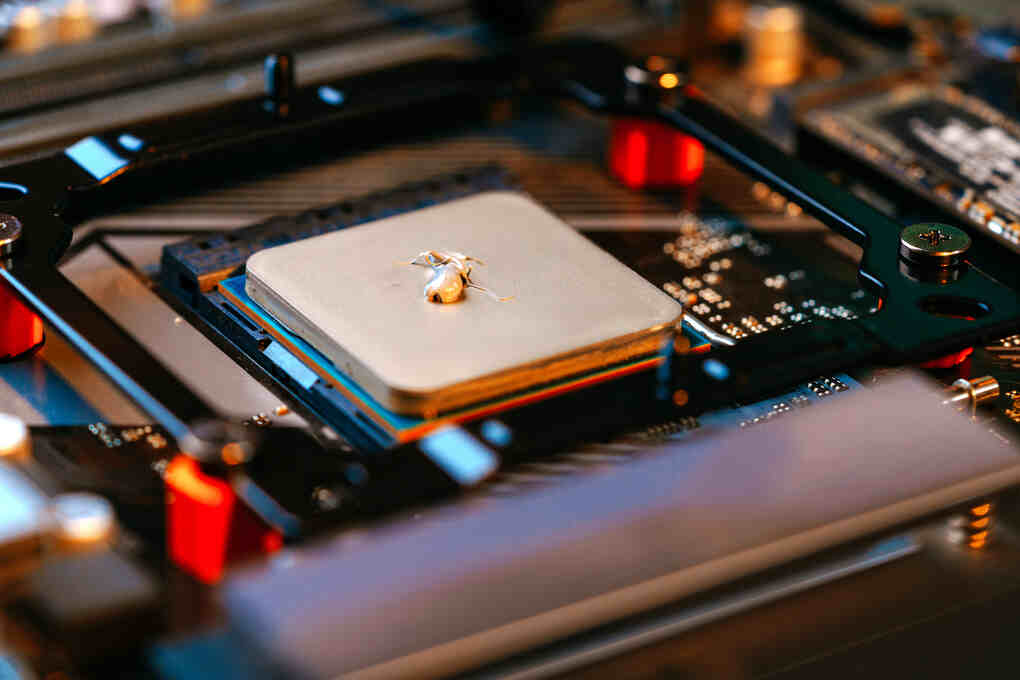
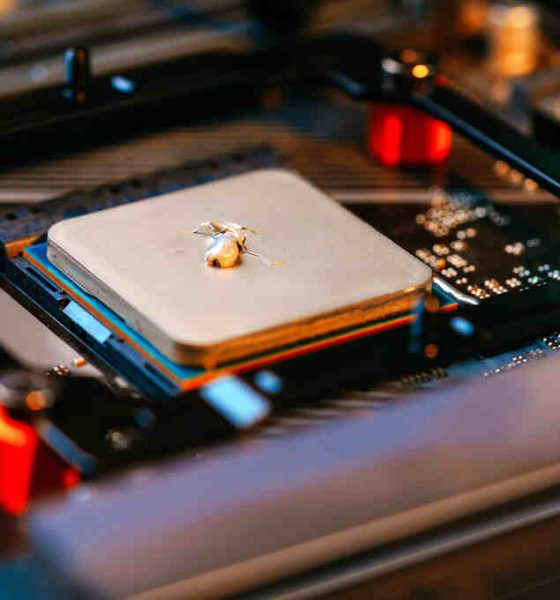
Head To Head
The Great Processor Mystery: Which Is Best, AMD or Intel?
![]()
In the world of technology, few rivalries are as intense and enduring as the one between AMD and Intel. Like two legendary detectives vying to solve the ultimate mystery, these two giants of the semiconductor industry have been locked in a battle for supremacy in the processor market for decades. But as any good detective knows, the truth is often elusive, and the answer to the question, “Which is best, AMD or Intel?” is far from simple. Today, we delve into this complex case, examining the evidence to uncover which processor brand truly reigns supreme.
The Historical Files – A Look Back at the Rivalry
Our investigation begins with a journey into the past. To understand the current landscape, we must first examine the history of the AMD vs. Intel rivalry. This case dates back to the 1970s when both companies were in their infancy, and the world was just beginning to embrace the concept of personal computing.
Intel, founded in 1968, quickly established itself as a leader in the microprocessor market with the introduction of the Intel 4004 in 1971, the world’s first commercial microprocessor. AMD, founded a year later, initially started as a second-source manufacturer of Intel processors but soon began developing its own competing products.
Throughout the 1980s and 1990s, Intel dominated the market with its 386 and 486 processors, followed by the Pentium series. AMD, however, refused to be outdone and gained significant attention with its Athlon series in the late 1990s, which offered strong performance at competitive prices.
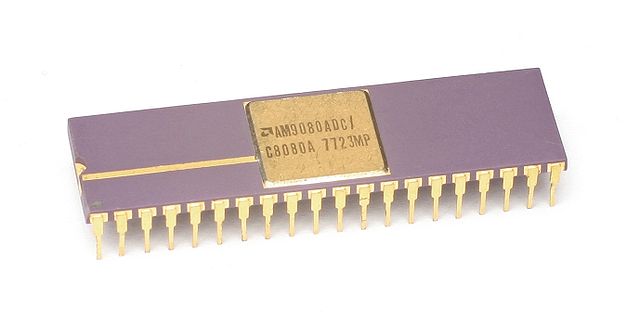
The Performance Puzzle – Who Packs More Power?
With the historical context in mind, our next step is to examine the current state of play. In the detective’s toolkit, performance is a crucial piece of evidence. Modern processors must deliver exceptional speed, efficiency, and multitasking capabilities to meet the demands of today’s users.
In recent years, AMD has made a remarkable comeback with its Ryzen series of processors, which debuted in 2017. The Ryzen lineup, based on AMD’s Zen architecture, offered impressive multi-core performance, making it a favorite among gamers, content creators, and professionals. The introduction of Ryzen 5000 series processors further solidified AMD’s position, with the Ryzen 9 5900X and 5950X leading the charge.
Intel, on the other hand, has long been known for its strong single-core performance, which is crucial for tasks like gaming. The 11th Gen Intel Core processors, particularly the Core i9-11900K, showcased Intel’s continued commitment to delivering top-tier gaming performance. However, critics pointed out that Intel’s advancements in multi-core processing lagged behind AMD’s offerings, especially in high-end applications like video editing and 3D rendering.
The Price Perpetrator – Value for Money
A detective must always follow the money trail, and in this case, the price-to-performance ratio is a key factor for many buyers. Millennials, in particular, are often budget-conscious but still demand high-quality performance for their tech investments.
AMD has traditionally been known for offering more bang for your buck. The Ryzen series provided excellent performance at competitive prices, making it an attractive option for those building a PC on a budget. This value proposition extended across their lineup, from entry-level processors like the Ryzen 3 to high-end models like the Ryzen 9.
Intel, while often priced higher, justified its premium with a reputation for stability, reliability, and strong performance in gaming. However, as AMD closed the performance gap, the higher cost of Intel processors became a sticking point for many consumers. The introduction of Intel’s Alder Lake processors, with a new hybrid architecture, aimed to offer better value, but AMD’s aggressive pricing strategy continued to put pressure on Intel’s dominance.
The Gaming Gambit – Which Processor Reigns Supreme?
For many millennials, gaming performance is the ultimate test of a processor’s capabilities. In the world of esports, AAA titles, and virtual reality, every frame counts, and the choice between AMD and Intel can make all the difference.
Intel has long held the crown when it comes to gaming. The high clock speeds and strong single-core performance of Intel processors have made them the go-to choice for gamers seeking the highest possible frame rates. Titles like Counter-Strike: Global Offensive and Fortnite have often performed better on Intel chips, thanks to their ability to push high frequencies and low latency.
However, AMD’s Ryzen processors have closed the gap significantly. The Ryzen 5000 series, with its Zen 3 architecture, delivered gaming performance that rivaled, and in some cases surpassed, Intel’s offerings. The higher core counts in Ryzen processors also provided an advantage in games optimized for multi-core processing, such as Cyberpunk 2077 and Assassin’s Creed Valhalla.
The Content Creation Conundrum – A Processor for Creators
As we move deeper into our investigation, we uncover another crucial factor: content creation. Whether it’s video editing, 3D modeling, or streaming, many millennials require a processor that can handle demanding creative workloads without breaking a sweat.
AMD has positioned itself as the preferred choice for content creators. The higher core and thread counts in Ryzen processors make them ideal for tasks like rendering, encoding, and streaming. The Ryzen 9 5900X and 5950X, for example, offer 12 and 16 cores, respectively, providing immense processing power for multitasking and intensive applications.
Intel, while still strong in content creation, especially with its high-end Core i9 processors, has faced stiff competition from AMD in this arena. The introduction of Intel’s Alder Lake series, with its hybrid architecture combining high-performance and efficiency cores, aimed to improve multitasking capabilities, but AMD’s dominance in multi-threaded performance remained a significant advantage.
The Power Efficiency Enigma – Watt’s the Deal?
Our next clue leads us to power efficiency, an increasingly important consideration in an era of rising energy costs and growing environmental awareness. A processor’s power consumption not only affects your electricity bill but also the heat output and cooling requirements of your PC.
AMD’s Ryzen processors have been lauded for their power efficiency, particularly the Ryzen 4000 and 5000 series. Built on a 7nm process, these chips offer high performance while maintaining lower power consumption compared to Intel’s offerings. This efficiency is especially beneficial for laptop users, where battery life is a critical factor.
Intel has traditionally used more power, particularly in its high-performance desktop processors. However, with the introduction of the 10nm process in the Alder Lake series, Intel made strides in improving power efficiency. Still, AMD’s edge in this area has made Ryzen processors a popular choice for those seeking a balance between performance and energy consumption.
The Future Forecast – What Lies Ahead?
As detectives, we must also consider what the future holds. The processor landscape is constantly evolving, with new technologies and advancements reshaping the market. To solve this case, we need to look at where AMD and Intel are headed.
AMD’s roadmap includes the continued development of its Zen architecture, with Zen 4 on the horizon, promising further improvements in performance and efficiency. AMD’s commitment to innovation, including its work on 3D stacking technology and advanced process nodes, suggests that it will remain a formidable competitor in the years to come.
Intel, not to be outdone, is betting big on its Alder Lake architecture and the upcoming Raptor Lake series. Intel’s focus on hybrid architectures, combining performance and efficiency cores, could redefine the processor landscape and potentially give Intel the upper hand in both gaming and multitasking.
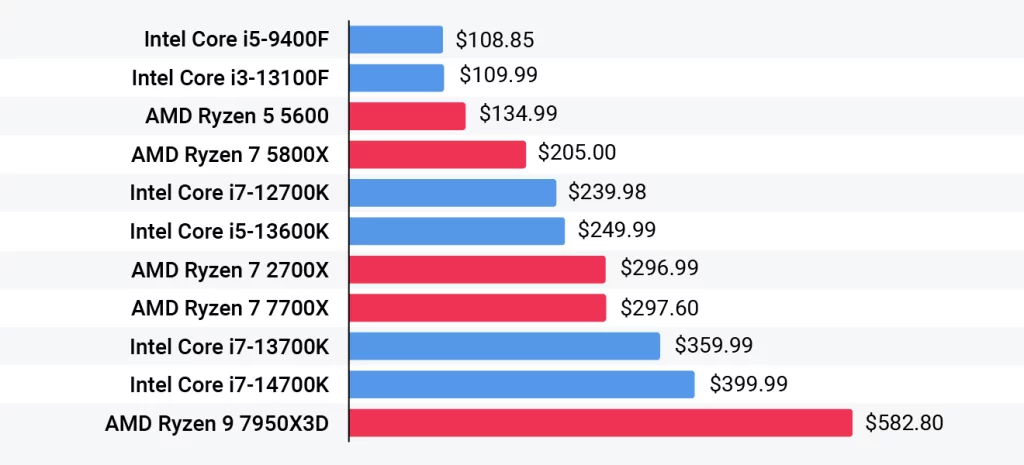
The Verdict – Which is Best?
After sifting through the evidence, we arrive at the most critical part of our investigation: the verdict. So, which is best, AMD or Intel?
The answer, as is often the case in detective work, is nuanced. It depends on your specific needs and priorities:
- For Gaming: If your primary focus is gaming, Intel still holds a slight edge, particularly in titles that prioritize single-core performance. However, AMD’s Ryzen processors offer excellent gaming performance with the added benefit of stronger multi-core capabilities for other tasks.
- For Content Creation: AMD’s Ryzen processors, with their higher core counts and superior multi-threaded performance, are the go-to choice for content creators who need to handle demanding tasks like video editing, 3D rendering, and streaming.
- For Value: AMD generally offers better value for money, especially if you’re building a PC on a budget. Intel’s processors tend to be pricier, but they come with a reputation for stability and reliability.
- For Power Efficiency: AMD leads the way in power efficiency, making Ryzen processors ideal for energy-conscious users or those building compact systems where cooling is a concern.
Conclusion
In the end, the case of “Which is best, AMD or Intel?” remains open. Both companies offer compelling products that cater to different needs and preferences. As technology continues to evolve, the balance of power may shift, but for now, the choice between AMD and Intel is one that each user must make based on their unique requirements.
The great processor mystery is one that will likely continue to intrigue and challenge tech enthusiasts for years to come. As detectives in this ever-changing landscape, it’s our job to stay informed, weigh the evidence, and make the best decision for our individual needs. Whether you choose AMD or Intel, rest assured that you’re getting a powerful tool capable of solving even the most demanding computing tasks.

Head To Head
Google Rolls Out Pixel 9 Phones Earlier Than Usual as AI Race with Apple Heats Up
![]()
In a surprising move, Google has decided to launch its Pixel 9 phones earlier than expected, signaling a heightened sense of urgency in the competitive tech landscape. The early release is seen as a strategic move to gain an edge in the ever-intensifying artificial intelligence (AI) race against Apple, a battle that is not only about hardware but also about who can best integrate AI into their devices.
Google’s Strategic Shift
Google’s decision to roll out the Pixel 9 series ahead of schedule is a clear indication that the company is looking to outmaneuver Apple in the AI-driven smartphone market. Traditionally, Google has aligned its Pixel launches with major hardware events or just ahead of the holiday shopping season. However, this year, the tech giant has opted for an earlier release, potentially disrupting Apple’s plans and capturing the attention of tech enthusiasts.
The Pixel 9 series is expected to showcase Google’s advancements in AI, particularly in areas such as computational photography, voice recognition, and real-time translation. These features are likely to be powered by Google’s custom Tensor processors, which have been designed to optimize AI tasks. The early release also suggests that Google is confident in its ability to deliver a product that can challenge the iPhone’s dominance in the market.
The AI Race: Google vs. Apple
The competition between Google and Apple in AI has been escalating for years. Both companies have invested heavily in AI research and development, aiming to create smarter, more intuitive devices. For Google, AI has always been at the core of its products, with the company leveraging its vast data resources to improve the user experience. The Pixel 9 series is expected to take this integration to new heights, offering users an AI-powered smartphone that can anticipate their needs and provide personalized solutions.
Apple, on the other hand, has also made significant strides in AI, particularly with its Siri virtual assistant and the A-series chips that power its iPhones. The Cupertino-based company has been focusing on creating a seamless user experience, where AI works quietly in the background to enhance performance and usability. The upcoming iPhone models are expected to feature even more advanced AI capabilities, making the battle between the Pixel 9 and the next iPhone one to watch closely.
What’s New in the Pixel 9 Series?
While Google has yet to reveal all the details about the Pixel 9, leaks and rumors suggest that the phone will come with several new features that highlight its AI capabilities. These may include improvements to Google’s already impressive camera system, enhanced voice commands, and possibly new AI-driven health monitoring tools. The Pixel 9 is also expected to build on the success of its predecessors with a refined design, better battery life, and faster performance.
One of the key selling points of the Pixel series has always been its camera, and the Pixel 9 is likely to continue this trend. With the help of AI, Google has been able to deliver stunning photos that rival even the best DSLR cameras. The Pixel 9 is expected to push the boundaries of what’s possible with smartphone photography, using AI to enhance image quality in low light, improve focus, and offer more creative options for users.
Market Implications
Google’s decision to launch the Pixel 9 early could have significant implications for the smartphone market. By getting ahead of Apple, Google may be able to capture a larger share of the market, especially among users who are eager to try out the latest AI features. The early launch also puts pressure on Apple to deliver something truly groundbreaking with its next iPhone, as consumers will now have a direct comparison between the two devices.
The Pixel 9’s success will largely depend on how well Google can market its AI features and convince consumers that they offer real value. In a market where incremental upgrades are often met with indifference, Google will need to clearly demonstrate how its AI innovations make a difference in everyday use.
Conclusion
As the AI race between Google and Apple heats up, the early release of the Pixel 9 series marks a bold move by Google to assert its dominance in the AI-driven smartphone market. With AI at the forefront of this competition, both companies are vying to create the smartest, most intuitive devices on the market. Whether Google’s gamble will pay off remains to be seen, but one thing is clear: the battle for AI supremacy is just beginning, and consumers are likely to benefit from the innovations that emerge from this fierce competition.
Head To Head
PlayStation vs Xbox: Who’s the Ruler? A Detective’s Investigation
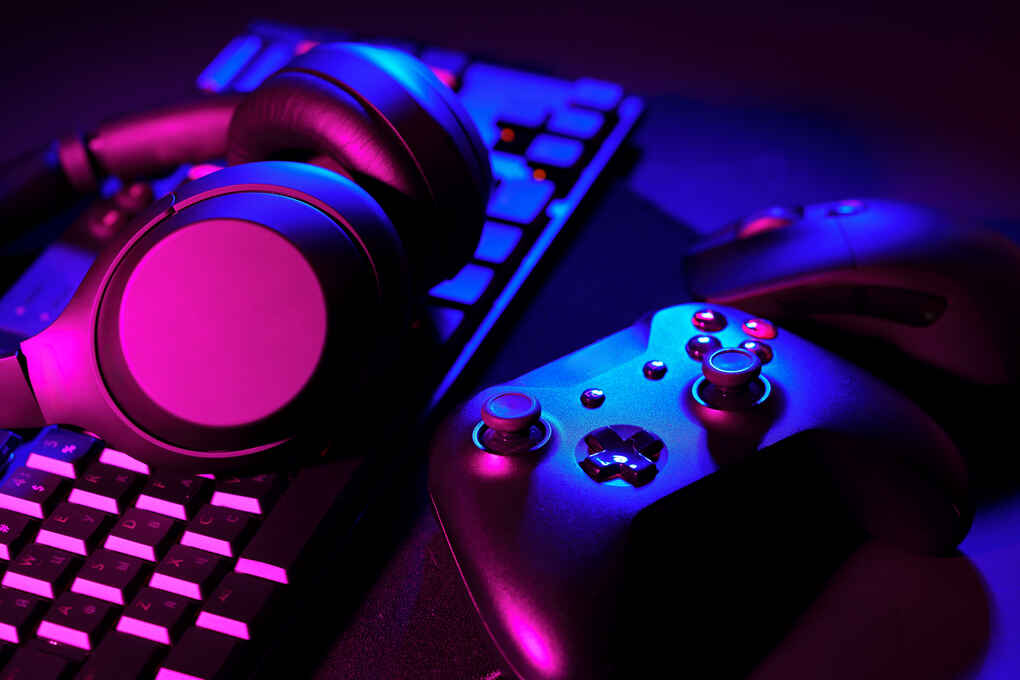
![]()
In the dimly lit corners of the gaming world, a rivalry as old as time continues to brew. PlayStation and Xbox, two titans of the gaming industry, have been locked in a battle for supremacy for decades. Gamers across the globe are torn, swearing allegiance to one side or the other. But the question remains, “Who’s the true ruler of the gaming kingdom?” Let’s embark on a detective-like investigation to uncover the facts.
A Battle of Specs
When evaluating these two giants, the first step in our investigation is to examine the scene of the crime – the technical specifications. Like a seasoned detective scrutinizing the evidence, we’ll need to carefully consider each console’s hardware.
On one hand, we have the PlayStation 5, boasting a custom AMD CPU with 8 Zen 2 cores running at 3.5GHz, paired with a custom GPU based on AMD’s RDNA 2 architecture delivering 10.28 TFLOPs. It also features a speedy SSD that drastically reduces load times, ensuring smooth gameplay.
On the other hand, the Xbox Series X counters with an 8-core AMD Zen 2 CPU running at 3.8GHz, and a GPU also based on RDNA 2, but this one pushes out 12 TFLOPs. The Xbox’s SSD is equally impressive, promising lightning-fast loading times.
With both consoles offering top-tier hardware, it’s a close call. The PlayStation 5 might be slightly behind in raw power, but it makes up for it with its lightning-fast SSD and innovative controller features. The Xbox Series X, however, flexes its muscles with higher TFLOPs, which could translate to slightly better performance in certain games.
Motive and Opportunity
The next piece of evidence in our investigation comes in the form of game libraries. A console can have all the power in the world, but without great games, it’s like a gun with no bullets – all bark and no bite.
PlayStation has long been known for its stellar lineup of exclusive games. From the epic journeys in “God of War” and “The Last of Us” to the mesmerizing world of “Horizon Zero Dawn,” PlayStation exclusives have often been the crown jewels of the gaming world. These games not only offer engaging narratives and innovative gameplay but also push the hardware to its limits, showing what the console is truly capable of.
Xbox, not to be outdone, has been beefing up its arsenal of exclusives as well. With titles like “Halo Infinite,” “Forza Horizon,” and “Gears of War,” Xbox has its own heavy hitters. Moreover, Xbox has a secret weapon in its Game Pass service, offering a vast library of games for a monthly fee, which is an undeniable value proposition for gamers.
So, who has the upper hand? PlayStation’s exclusives are undeniably some of the best in the industry, but Xbox’s Game Pass offers something unique – access to hundreds of games, including day-one releases. It’s a tough call, but for sheer value and variety, Xbox might edge out a win here.
User Experience
As we continue our investigation, we must consider the user experience – the intangible quality that makes a console feel right in the hands of a gamer. Both consoles have their strengths and weaknesses in this area.
The PlayStation 5 introduces the DualSense controller, which features haptic feedback and adaptive triggers. These innovations allow players to feel more connected to the game world, making every shot, punch, and explosion resonate in their hands. It’s a game-changer, offering an experience that is hard to find anywhere else.
Xbox, meanwhile, takes a more traditional approach with its controller, which has been refined over the years to near-perfection. The Xbox Series X controller is comfortable, reliable, and familiar, making it a favorite among many gamers. Additionally, Xbox’s backward compatibility is impressive, allowing players to revisit a wide range of games from previous generations.
While Xbox offers a solid and consistent experience, PlayStation’s focus on innovation with the DualSense gives it a unique edge. It’s a close match, but the DualSense might just be the factor that sways some gamers toward PlayStation.
Gaming Community
No investigation would be complete without talking to the witnesses – the gamers themselves. After all, they are the ones who have experienced both consoles firsthand.
When it comes to PlayStation, the fan base is passionate, with many loyalists who have stuck with the brand since the original PlayStation. These gamers are often drawn to the immersive single-player experiences and the narrative-driven games that PlayStation excels in. The PlayStation 5 has built on this legacy, offering experiences that are both familiar and groundbreaking.
Xbox, on the other hand, has cultivated a strong community around its multiplayer offerings. Games like “Halo” and “Gears of War” have become cultural touchstones for many gamers, fostering a sense of camaraderie and competition. Moreover, Xbox’s focus on cross-platform play and the Game Pass service has won it a new wave of supporters who value flexibility and affordability.
The gaming community is divided, with strong arguments on both sides. Some prefer the cinematic, narrative-driven experiences of PlayStation, while others are drawn to Xbox’s multiplayer offerings and Game Pass. In this aspect, the true winner may depend on personal preference.
Who’s the Ruler?
So, who rules the gaming kingdom? After gathering all the evidence, it’s clear that both PlayStation and Xbox have their strengths and weaknesses. PlayStation offers innovative technology with the DualSense controller and a library of exclusive games that are second to none. Xbox counters with powerful hardware, an unbeatable value proposition in Game Pass, and a strong multiplayer community.
If you’re a gamer who craves cutting-edge innovation and deeply immersive single-player experiences, PlayStation might be your console of choice. On the other hand, if you’re looking for a versatile gaming ecosystem with a focus on value, community, and backward compatibility, Xbox could be the ruler you’re looking for.
In the end, the true ruler is subjective – it depends on what you, the gamer, value most in your gaming experience. The PlayStation vs Xbox debate may never have a definitive answer, but one thing is certain: the competition between these two titans pushes the boundaries of gaming, delivering better experiences for all of us.
And so, dear gamer, the investigation concludes with the case wide open. The choice is yours – which side will you choose in this epic battle of the consoles? The decision, like all great mysteries, lies in the eye of the beholder.
Head To Head
The Ultimate Showdown: Lion vs. Gorilla – Who Wins?

![]()
In the wild, few matchups ignite the imagination quite like the hypothetical battle between a lion and a gorilla. Both are apex predators in their respective domains, with the lion reigning as the king of the savannah and the gorilla as the gentle giant of the forest. But what would happen if these two titans clashed? In this detective-like investigation, we’ll delve into the strengths, weaknesses, and strategies of each to determine who might emerge victorious in this ultimate showdown.
The Contenders—Meet the Combatants
Before we dive into the battle, let’s first take a closer look at our two contenders.
The Lion: King of the Savannah
The lion (Panthera leo) is the quintessential symbol of power and dominance in the animal kingdom. With males weighing up to 420 pounds and females up to 280 pounds, lions are built for strength and speed. Their powerful jaws and sharp claws make them formidable hunters, capable of taking down prey much larger than themselves.
- Strengths:
- Speed and Agility: Lions can reach speeds of up to 50 miles per hour in short bursts, allowing them to quickly close the distance between themselves and their prey.
- Powerful Bite: A lion’s bite force is around 650 pounds per square inch (psi), enough to crush bones with ease.
- Pride Support: In the wild, lions hunt in prides, using teamwork to their advantage. However, in a one-on-one battle, this advantage disappears.
The Gorilla: Gentle Giant of the Jungle
The gorilla (Gorilla gorilla) is the largest of the great apes, with males known as silverbacks weighing up to 500 pounds. Gorillas are herbivores, relying on their immense strength to navigate the dense forests of Central Africa. Unlike the lion, gorillas are not natural predators, but they possess incredible power and intelligence.
- Strengths:
- Incredible Strength: A gorilla’s upper body strength is legendary, with estimates suggesting they are four to ten times stronger than the average human.
- Intelligence and Dexterity: Gorillas have a high level of intelligence, using tools and displaying problem-solving abilities that far surpass those of most animals.
- Thick Skin and Muscle: A gorilla’s thick skin and dense muscle mass provide substantial protection against physical attacks.
Where Would This Battle Take Place?
The outcome of this showdown could be heavily influenced by the environment in which it occurs. A lion is most comfortable in the open savannah, where its speed and agility are fully utilized. The gorilla, on the other hand, thrives in dense forests, where its strength and climbing abilities give it an edge.
Savannah vs. Jungle
- In the Savannah: The lion would have a clear advantage with its ability to sprint across open ground. Its sharp claws and teeth would be deadly in a direct confrontation, especially if it can land a surprise attack.
- In the Jungle: The gorilla would be in its element, using trees and dense foliage to its advantage. The gorilla’s superior strength and ability to climb would make it difficult for the lion to land a decisive blow.
Chapter 3: The Battle—Strengths, Strategies, and Weaknesses
Now that we’ve set the stage, let’s break down how each animal might approach this confrontation.
The Lion’s Approach: Speed and Ferocity
Lions are ambush predators, relying on stealth, speed, and the element of surprise to take down their prey. In a battle against a gorilla, the lion would likely attempt to use its speed to get close quickly and land a fatal bite to the throat or spine. The lion’s sharp claws could also inflict serious wounds, weakening the gorilla before it can mount a defense.
- Advantages:
- Speed: The lion’s ability to sprint could allow it to close the distance before the gorilla can react.
- Precision: A well-placed bite or swipe could be enough to incapacitate the gorilla.
- Disadvantages:
- Stamina: Lions are built for short bursts of speed, not prolonged battles. If the gorilla can survive the initial assault, it could outlast the lion in a prolonged struggle.
The Gorilla’s Approach: Power and Defense
The gorilla’s best strategy would be to use its immense strength and intelligence to counter the lion’s speed. Standing its ground, the gorilla could use its powerful arms to deliver crushing blows, potentially breaking bones or knocking the lion off balance. If the gorilla can grab the lion, it could use its grip strength to prevent the lion from using its claws and teeth effectively.
- Advantages:
- Strength: The gorilla’s raw power could overwhelm the lion in close quarters.
- Defense: The gorilla’s thick skin and muscle mass would offer some protection against the lion’s claws and teeth.
- Disadvantages:
- Lack of Lethal Weapons: While the gorilla is incredibly strong, it lacks the sharp claws and teeth that give the lion its killing power.
Chapter 4: The Verdict—Who Would Win?
After analyzing the strengths, weaknesses, and strategies of both animals, it’s time to deliver the verdict.
In the Savannah: Lion’s Territory
In an open environment like the savannah, the lion’s speed and agility would likely give it the upper hand. The lion could use the element of surprise to land a quick, decisive blow, potentially ending the fight before the gorilla can react. However, this outcome hinges on the lion’s ability to end the fight quickly. If the battle drags on, the gorilla’s superior endurance and strength could turn the tide.
In the Jungle: Gorilla’s Territory
In the dense jungle, the gorilla’s strength and climbing abilities would give it a distinct advantage. The gorilla could use the environment to its advantage, avoiding the lion’s attacks while delivering powerful counterattacks. The lion’s speed would be less effective in a confined space, and the gorilla’s raw power could allow it to overpower the lion in a prolonged struggle.
Neutral Ground: A Balanced Arena
In a neutral setting, where neither animal has a clear environmental advantage, the outcome is less predictable. The battle would likely come down to whether the lion can land a decisive blow before the gorilla can use its strength to neutralize the lion’s offensive capabilities. It would be a close and brutal fight, with either animal capable of emerging victorious.
Conclusion: The Case Remains Open
The question of who would win in a battle between a lion and a gorilla is a fascinating one, but it’s ultimately a case with no definitive answer. The outcome would depend heavily on the environment, the animals’ physical condition, and a host of other factors that are impossible to predict with certainty. What we do know is that both animals are incredible in their own right, each perfectly adapted to their respective environments.
In the end, perhaps it’s better that these two titans remain in their separate domains, each ruling over their own kingdoms. The jungle and the savannah are both wild, untamed places, and in the vast expanse of nature, there’s room for both the lion and the gorilla to reign supreme in their own way. The case may remain open, but the mystery only adds to the allure of these magnificent creatures.
-

 Top 1011 months ago
Top 1011 months agoUnmasking the Cruelty: Top 10 Ways to Prevent Animal Cruelty
-

 Ask Why11 months ago
Ask Why11 months agoWhy Is the Check Engine Light On? A Detective’s Guide to Unraveling the Mystery
-

 How-Tos11 months ago
How-Tos11 months agoUnmasking the Mystery of Keeping Squirrels Away
-

 Top 1011 months ago
Top 1011 months agoUnmasking the Threats: The Top 10 Ways to Protect Endangered Species
-

 Forex7 months ago
Forex7 months agoWhat Are Swing Highs and Swing Lows in Market Structure? A Comprehensive Guide for TradingView Users
-

 Head To Head11 months ago
Head To Head11 months ago10 Reasons Why Dogs Are Better Than Cats: A Detective’s Investigation
-

 Deep Science11 months ago
Deep Science11 months agoThe 10 Craziest Scientific Discoveries You Missed in 2024
-

 Deep Science11 months ago
Deep Science11 months agoCatch the Perseid Meteor Shower: Peak Viewing Tips!